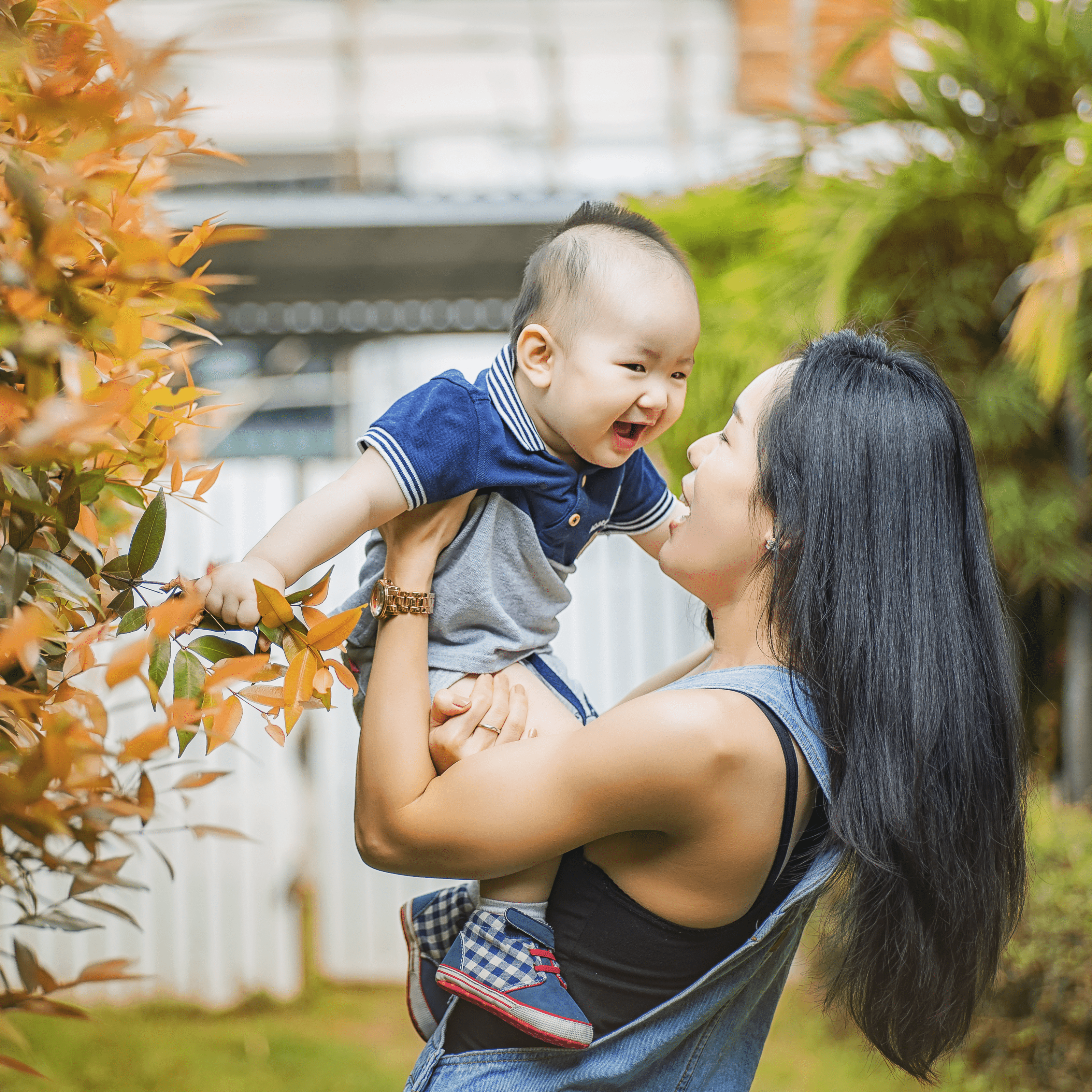Have you ever pretended to know what someone’s talking about while making a mental note to look that term up later? Uh-huh. Well, I have to confess, I’ve been hearing the term infant mental health for a few years now, without really knowing what it meant. You know how it is, you get busy at work and months go by, and then EVERYONE’S talking about it…so I thought this would be a perfect opportunity to find out more about the topic. Maybe you’re interested, too?
The first thing I discovered was that the term infant and early childhood mental health (IECMH) has two broad uses. The first meaning describes the social and emotional wellbeing of children aged birth-5 years.6,7 Secondly, the term encompasses the wide range of services that promote infant emotional health and prevent and treat mental health disorders in children.6 For our exploration, we’ll focus on the first definition of the social and emotional wellbeing of children.
According to mental health specialists, IECMH includes three areas of development which are:
- Relationships – A child’s ability to form secure attachment relationships with their parents or caregivers and healthy relationships with their peers.4,6,7
- Emotions – A child’s ability to experience and show a full range of emotions and learn to manage those feelings with the support of a nurturing adult.4,6,7
- Discovery and Learning – A child’s ability and confidence to explore their surroundings, try new things, and learn.4,6,7
These three areas of development all play out within the context of a child’s family, community, and culture.5,6,7 (Zero To Three has an excellent infographic about IECMH that you can access here. https://www.zerotothree.org/resources/2674-how-to-talk-about-infant-and-early-childhood-mental-health)
IECMH is important because emotional wellbeing affects all areas of a child’s development.1,6 According to the statistics, around 1 in every 9 -14 young children experience social and emotional disruptions. 3,6 These disturbances can interrupt a child’s healthy brain development, impact their ability to learn, shape how they interact with others, and if left untreated, can affect their long-term future.5
Infant mental health specialists say that emotional concerns can be tricky to determine in young children as babies, toddlers, and preschoolers make sense of, and respond to, experiences differently than older children and adults.1 Although diagnosis can only be made by an expert, some warning signs of emotional disturbances in infants and toddlers can include persistent eating or sleeping difficulties, inconsolable crying, or struggling to form relationships with others.6 Preschoolers may experience compulsive behaviors, extreme outbursts of emotion, or relentless anxiety.6
As distressing as this is, there is some good news. Mental health experts share that when supports are put in place early on, many potential emotional disturbances won’t develop into serious mental health problems for children.2,6 So, like me, you’re probably asking yourself what can be done to support kids and buffer the effects of emotional disturbances?
Well, researchers share that the foundation for strong mental health is built on children’s early experiences and relationships.1 Although genetics can play a part in mental health, the experiences a child has influence how big or small a role those genes play.1 Even though life may not be perfect, nurturing relationships can buffer kids from the effects of adversity and toxic stress and help them grow up to feel good about themselves and the world around them.5 When babies and children experience love and acceptance, they can enjoy healthy relationships with others and thrive.4,5 That means that ANYONE who’s involved in a child’s life can contribute to strengthening their social and emotional wellbeing.7
Alongside experiencing caring relationships, supporting parents is also critical to improving children’s social and emotional wellbeing.2,3,5 When a family’s needs are met, parents’ stress is reduced, which lessens the pressure on children, too.1 That means that as we build genuine relationships with families around us and connect them to resources in the community, we also nurture IECMH.2
For me, my biggest takeaway about IECMH is that whatever our role in a child’s life, we all play an important part in promoting their mental health and buffering any emotional disruptions they experience.5,6 You matter, I matter, and our relationships with children and families matter. I hope this truth fans the flame of passion for the work you do as you make a difference in the lives of children and families today.
References:
1. Center on the Developing Child at Harvard University. (2013). InBrief: Early childhood mental health. https://developingchild.harvard.edu/resources/inbrief-early-childhood-mental-health/
2. Center on the Developing Child at Harvard University. (2015, June 9). InBrief: Early childhood mental health [Video]. YouTube. https://developingchild.harvard.edu/resources/inbrief-early-childhood-mental-health-video/
3. Cohen, J., Oser, C., & Quigley, K. (2012, April). Making it happen: Overcoming barriers to providing infant-early childhood mental health. Zero To Three. https://www.zerotothree.org/resources/511-making-it-happen-overcoming-barriers-to-providing-infant-early-childhood-mental-health
4. Finello, K., & Project ABC – About Building Connections for Young Children and Their Families. (n.d.). What is infant mental health and why is it important? Project ABC About Building Connections. http://www.projectabc-la.org/resource/what-is-infant-mental-health-and-why-is-it-important/
5. National Scientific Council on the Developing Child. (2008/2012). Establishing a level foundation for life: Mental health begins in early childhood: Working paper no. 6. (Updated edition). Center on the Developing Child at Harvard University. https://developingchild.harvard.edu/resources/establishing-a-level-foundation-for-life-mental-health-begins-in-early-childhood/
6. Zero To Three. (2017, August 2). The basics of infant and early childhood mental health: A briefing paper. https://www.zerotothree.org/resources/1951-the-basics-of-infant-and-early-childhood-mental-health-a-briefing-paper
7. Zero To Three. (2019, March 12). How to talk about infant and early childhood mental health. https://www.zerotothree.org/resources/2674-how-to-talk-about-infant-and-early-childhood-mental-health

About the Author
Melissa Weekes is a Product Development Specialist. Prior to joining Great Kids® in 2018, she worked as a home visitor with Public Health Services where she used the Growing Great Kids® Curriculum. Melissa lives in Nova Scotia, Canada, with her husband and enjoys any opportunity to be creative!


